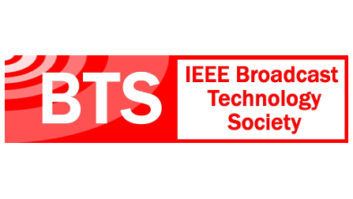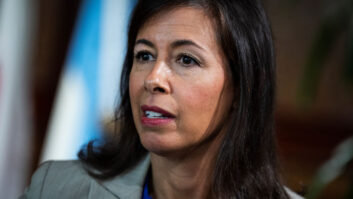WASHINGTON — As expected the FCC on Dec. 12 will officially launch its latest congressionally mandated “quadrennial” review of broadcast ownership rules.
FCC Chair Ajit Pai did the unveiling Nov. 20 in his monthly blog post on the items the FCC plans to vote on at its next public meeting, which he does when the tentative agenda is released 21 days before the meeting.
“On the media front, we’ll be kicking off a review of our media ownership rules — a review we’re required by statute to conduct every four years,” he said. “The 2018 Quadrennial Review, as it’s called, will begin with a Notice of Proposed Rulemaking which seeks public input on the relevant rules, such as the Local Radio Ownership Rule, as well as several diversity-related proposals.”
Senior FCC officials speaking on background said the review would not include either the 39% cap on national audience reach or the UHF discount from that cap.
The reason is that they were not among the rules the Congress requires it to review. They said the cap and discount would continue to be reviewed on a parallel track.
The rules up for review in the Quad are .the local radio ownership rules, local TV ownership limits and the dual-network rule. But they said it was an open-ended review with no tentative conclusions.It will ask whether the rules should remain, be modified, or eliminated.
The FCC will also review a trio of diversity-related proposals — one is whether to extend the cable procurement EEO regs to broadcast, whether to identify a “tipping point” of source diversity in lieu of ownership rules and on tradeable diversity credits, all issues MMTC has raised.
Chairman Ajit Pai had told Congress that the review was coming by year’s end, so it was no surprise that it was teed up for the meeting. The FCC has let the quadrennial deadline for concluding the review slip in the past for a variety of reasons — including having to repeatedly respond to court decisions on rule challenges — only wrapping up a combined 2010 and 2014 review in November of last year.
So the chairman is getting what could arguably be called an early start even though the look back will clearly be primarily a 2019 review. A senior official said they did not want this review to drag on for years, but would not put a deadline on it.Also at the meeting, the FCC will vote on a declaratory ruling that wireless text messages are information services, not telecom services, so that service providers can continue to protect their customers from span and scam robocalls, said senior FCC officials.
That ruling would deny petitions to declare text messages a telecom service. Texts had not previously been classified and the petitions gave the FCC a chance to weigh in.
The FCC says a text messaging service provides for storing and retrieving information, so it is like email. It also finds that text messaging, like wireless broadband service, is a commercial mobile service, not a private service, because it is not connected to the public-switched service.










